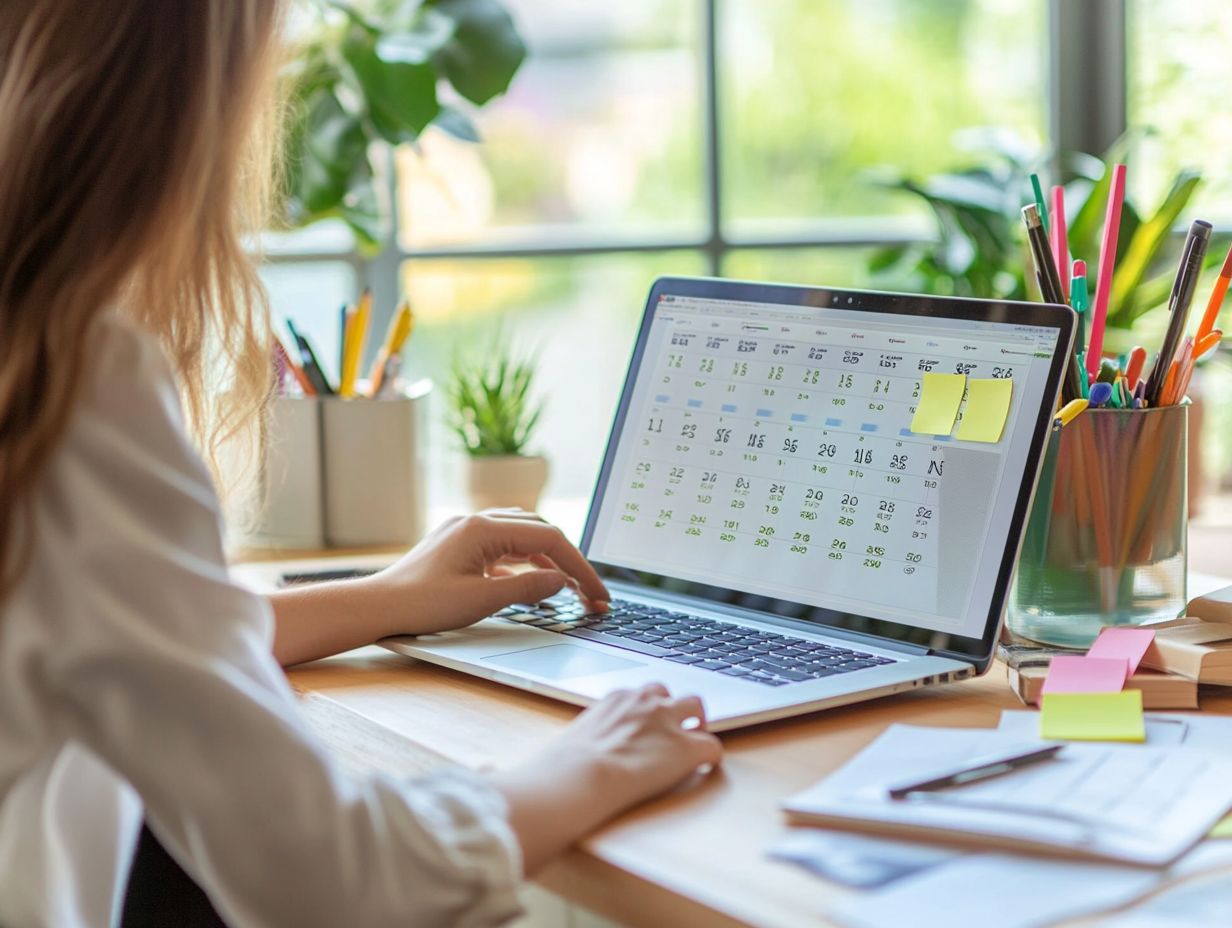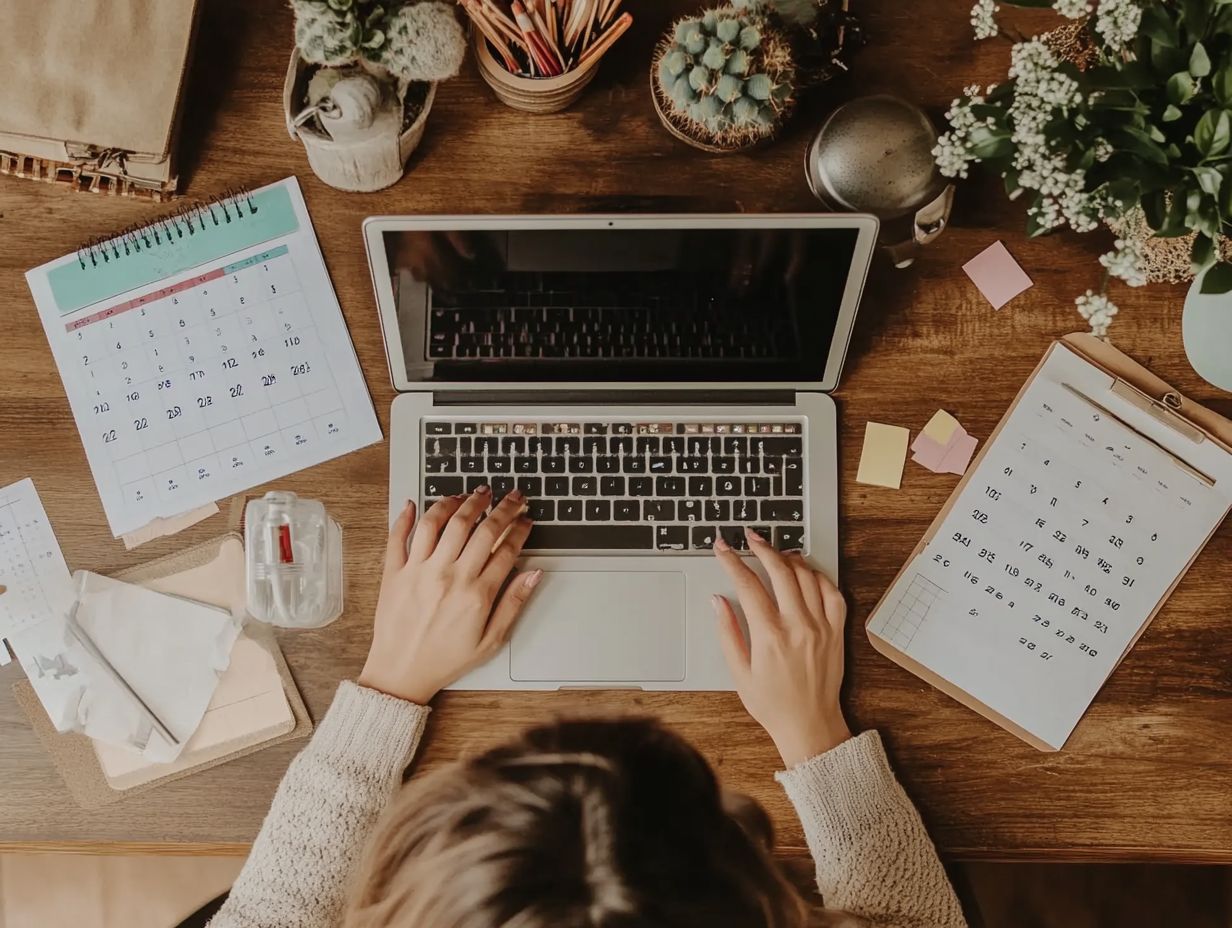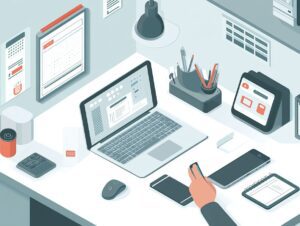Time management is an essential skill that has the power to significantly enhance both personal and professional aspects of your life. Get ahead with our list of Time-Saving Tricks.
By implementing effective organizational strategies, you can streamline your tasks and prioritize them more effectively. There are various productivity hacks available that can help you maximize efficiency while minimizing distractions. Additionally, there are valuable tools and apps specifically designed to improve your time management skills.
Furthermore, it’s important to develop time-saving habits that contribute to a consistent routine. You’ll also find useful tips to help overcome procrastination.
It’s time to take charge of your time!
Why Time Management is Important
Time management plays a vital role in today s fast-paced world, as it has a direct influence on efficiency and productivity. When individuals master time-saving techniques, they can prioritize tasks effectively, steer clear of procrastination, and work towards their goals more successfully.
With good time management, one can establish a balanced work-life dynamic, reduce stress levels, and enhance overall performance in both personal and professional areas. As such, it becomes an essential skill for personal development and the success of any organization.
Organizational Strategies
Implementing effective organizational strategies is crucial for optimizing workflow and enhancing productivity. By planning and organizing tasks into streamlined systems, individuals and teams can achieve efficiency metrics that contribute to improved performance and the successful attainment of goals.
These strategies help to reduce cognitive load and ensure that resources are allocated effectively, ultimately promoting a culture of collaboration and accountability.
Streamlining Tasks and Prioritizing
Streamlining tasks and effectively prioritizing them can greatly enhance productivity in both personal and professional environments. By employing focus techniques and quick fixes, individuals can address their to-do lists more efficiently while reducing the cognitive load that comes with multitasking. This approach not only facilitates task completion but also cultivates a sense of accomplishment and clarity throughout the day.
One effective way to achieve this is by using a prioritization matrix, which helps categorize tasks based on their urgency and importance. This matrix assists in identifying which tasks require immediate attention and which can be scheduled for later, ensuring that energy is directed where it is most needed.
Additionally, incorporating time-blocking techniques can further streamline tasks by dedicating specific time slots to focused work, helping to minimize distractions. By embracing these strategies, individuals can enhance their focus and create a structured method for tackling tasks, ultimately making their overall workflow much more manageable.
Productivity Hacks
Productivity hacks are effective strategies aimed at enhancing efficiency and optimizing the use of time. By utilizing time-saving tools and cultivating positive habits, individuals can improve their workflow and achieve their goals with greater ease.
These hacks can vary from simple adjustments in daily routines to the implementation of digital tools that automate tasks and promote better organization.
Maximizing Efficiency and Minimizing Distractions
Maximizing efficiency while minimizing distractions is essential for effective time management. By focusing on developing concentration and employing energy management techniques, individuals can significantly enhance their productivity. This involves creating an environment that supports deep work and implementing strategies that reduce interruptions, ultimately resulting in improved performance.
To cultivate a distraction-free workspace, it is advisable to organize your area to eliminate clutter and ensure that all necessary tools are easily accessible.
Utilizing timers, such as the Pomodoro Technique, can be beneficial for maintaining focus. This approach breaks work into manageable intervals, allowing for short breaks that help to rejuvenate cognitive energy.
Incorporating mindfulness practices, such as meditation or deep breathing exercises, can also foster a state of present awareness, which enhances the ability to concentrate on tasks.
By prioritizing these methods, individuals can not only significantly reduce distractions but also maintain higher energy levels throughout the workday, reinforcing the important connection between efficiency and productivity.
Utilizing Technology to amplify Time-Saving Tricks
Utilizing technology effectively has the potential to transform your approach to time management by providing a variety of tools and applications that simplify daily routines and boost productivity.
Automation and scheduling applications can help streamline your workflow, making it easier to manage tasks, set reminders, and collaborate with team members.
By incorporating these digital tools into your everyday life, you can optimize your time management strategies and alleviate decision fatigue.
Tools and Apps for Time Management
There are numerous tools and applications available that can significantly enhance time management, each designed to improve organization and performance tracking. Ranging from simple reminder apps to comprehensive project management platforms, these resources can assist users in meeting deadlines, managing task lists, and effectively monitoring performance indicators. By selecting the right combination of applications, one can create a personalized approach to achieve their time management goals.
For instance, exploring options like Todoist for straightforward task management or Trello for visually organizing projects can greatly boost efficiency. Each tool comes with its own unique features; Asana, for example, excels in facilitating team collaboration, while Clockify offers detailed time tracking capabilities.
It is essential to understand individual needs and preferences when determining which tools will be the best fit. Whether one is balancing personal tasks or coordinating a team project, integrating tools that resonate with them can streamline processes, leading to more productive outcomes and reduced stress.
Get into the Habit of Using Time-Saving Tricks
Incorporating time-saving habits into your daily routine can significantly enhance your efficiency and overall productivity. By prioritizing simplicity and establishing routines that encourage self-discipline, individuals can streamline their processes and minimize unnecessary clutter in their lives.
Developing these habits is crucial for maintaining a consistent workflow and achieving long-term goals.
Developing a Routine and Sticking to It
Developing a structured routine and committing to it can greatly enhance your self-discipline and accountability, ultimately leading to better achievement of your goals. By establishing consistent habits and dedicating specific time blocks for various tasks, individuals can create a reliable framework for managing their daily activities.
This structured approach fosters a sense of control and efficiency, which is essential for productivity.
To create an effective routine, it is important to start by setting clear and achievable goals that align with your personal values and aspirations. Regularly evaluating your performance against these objectives helps ensure that you are making progress, allowing you to make timely adjustments when necessary.
Incorporating accountability measures, such as sharing your goals with a trusted friend or utilizing productivity apps, can reinforce your commitment and motivate you to maintain your efforts.
By intertwining these elements of organization, adaptability, and responsibility, a well-crafted routine not only enhances your discipline but also propels you toward your desired outcomes. This makes the process of achieving your goals feel both attainable and rewarding.
Overcoming Procrastination
Overcoming procrastination is a challenge many individuals face, and it can significantly impact productivity while also contributing to heightened stress levels.
By recognizing their time-wasting habits and applying effective focus techniques, people can develop self-discipline and take charge of their tasks. This proactive strategy not only helps reduce procrastination but also improves stress management and overall performance.
Tips for Avoiding Time-Wasting Habits
Avoiding time-wasting habits is crucial for maintaining focus and enhancing productivity. By identifying quick fixes and implementing self-discipline techniques, individuals can effectively eliminate distractions and streamline their work processes. This kind of awareness fosters a more efficient approach to time management and helps cultivate habits that lead to long-term success.
To address these time-wasting activities effectively, it is important to first recognize both mental and environmental triggers that contribute to procrastination or a lack of focus. For example, creating a dedicated workspace that is free from noise and clutter can significantly enhance concentration and productivity. Additionally, setting specific time blocks for tasks establishes clearer boundaries and improves time management. For more insights, check out these tips for getting work done fast to boost your productivity now!
Practicing mindfulness can also assist in recognizing when one’s focus begins to wane. Rather than merely reacting to distractions, adopting proactive strategies such as scheduling breaks, prioritizing tasks, and using creative ways to save time can greatly improve overall productivity and efficiency. By incorporating these practices into daily routines, individuals can gradually replace inefficiency with more purpose-driven actions and effective planning.
Frequently Asked Questions on Time Management and Productivity
What are some time-saving techniques and hacks for daily household tasks?
Some time-saving tricks for daily household tasks include using a slow cooker for meals, creating a weekly meal plan, decluttering your space, and delegating tasks to other family members. Implementing these tips and tricks can greatly enhance your workflow.
How can I save time in the morning when getting ready for work and improve work-life balance?
To save time in the morning, you can lay out your clothes the night before, prepare breakfast and lunch ahead of time, use a timer for your morning routine, and implement quick fixes and time-saving tips like setting reminders on your smartphone apps.
What are some time-saving tricks and tools for managing my email inbox?
Time-saving tricks for managing your email inbox include setting up filters to automatically sort incoming emails, unsubscribing from unnecessary emails, using keyboard shortcuts to quickly respond and organize your emails, and utilizing email management tools. These strategies contribute to better organization and efficiency.
How can I save time while grocery shopping and enhance my daily routines?
To save time while grocery shopping, you can make a list beforehand, organize your list according to the layout of the store, use a shopping app to scan and check off items as you go, and implement effective planning like grouping similar items together. These techniques can streamline your process and make grocery shopping a more efficient task.
What are some time-saving techniques and productivity methods for studying and completing assignments?
Time-saving tricks for studying and completing assignments include breaking up tasks into smaller chunks, using the Pomodoro technique for focused work, utilizing online resources and study tools, and practicing effective goal setting and prioritization. Incorporating these strategies can significantly enhance your study habits.
How can I save time while commuting to work or school and improve my work-life balance?
To save time while commuting, you can use public transportation to get work done or catch up on reading, carpool with coworkers or classmates, and listen to audiobooks or podcasts to make the time more productive. Utilizing these multitasking strategies can lead to better time allocation and improved work-life balance.










